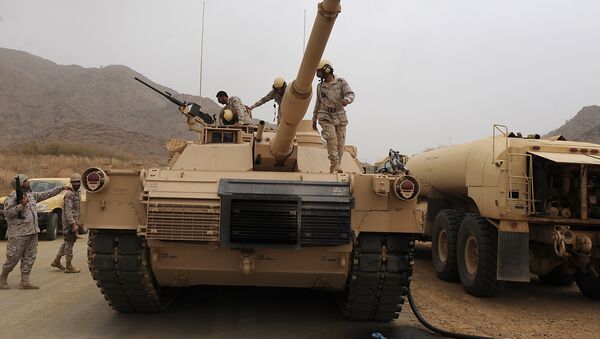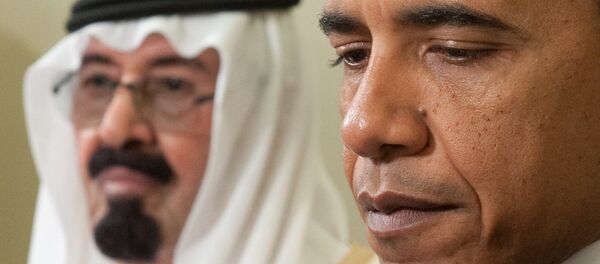On Wednesday the US Senate approved a $1.15 billion arms sale to Saudi Arabia, which has led a bombing campaign in neighboring Yemen since March 2015.
Riyadh launched the military intervention after Shiite Houthi rebels took control of the capital Sanaa and ousted President Abd-Rabbu Mansour Hadi, who subsequently fled to Saudi Arabia.
The United Nations estimates that roughly 10,000 people have been killed in 18 months of fighting. Approximately 3,800 of those casualties are believed to be civilians.
Despite that, the US Senate approved the deal, in the face of protests led by Republican Senator Rand Paul and his Democratic counterpart Chris Murphy. They raised concerns about how the Saudi Arabia would use the new weaponry, particularly as part of its military intervention in Yemen.
John Sifton, Deputy Washington Director and Asia Advocacy Director at Human Rights Watch, told Radio Sputnik that while the Senate vote didn't stop the arms deal going ahead it had an important symbolic meaning.
"It's purely a symbolic vote, but it's important because it says to the Saudi government that there are going to potentially be consequences if they continue in their bad conduct. It's very important that they take these accusations seriously, because right now after 16 months of reporting by Human Rights Watch about their indiscriminate and disproportionate bombing, they have shown no evidence of improving their conduct. None at all, so I think we need to send a stronger message to them." Sifton said.
"I think we've turned a corner where the US government, not just the Obama administration but the US writ large, starting to question their alliance (with Saudi Arabia) in the same way that the US is questioning the strength of its alliance with Israel."
"It's similar to how China has to deal with North Korea. These countries are starting to realize that there is a cost associated with being aligned with human rights abusers," Sifton said.




